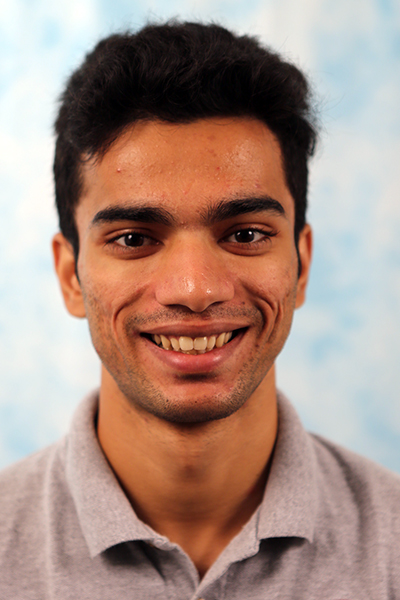
PhD Thesis Proposal
November

Abstract:
Robot manipulation in domestic households, industrial manufacturing and warehouses might require contact-rich interactions with objects in the environment. For pick-and-place style grasping tasks in cluttered scenes, it can be more economical for the robot to rely on non-prehensile actions vis-à-vis deliberate prehensile rearrangement. Non-prehensile actions also let the robot manipulate large and bulky objects that may otherwise be unsuitable for grasping. However, planning algorithms that utilise such actions must also reason about the complex multi-body interactions caused by them. They need to account for the change in configurations of the robot and objects as a result of robot-object and object-object interactions. This leads to two computational challenges: (i) the search space increases exponentially, and (ii) a physics-based simulator must be queried to evaluate the interaction dynamics as analytical models are difficult to write down.
The goal of this thesis is to develop planning algorithms that solve pick-and-place style grasping tasks via non-prehensile interactions in cluttered scenes in the 3D world. We assume that the planner has access to accurate physical models of the robot and objects, and can query a physics-based simulator to evaluate the interaction dynamics. The completed work in this thesis builds on the Manipulation Among Movable Obstacles (MAMO) domain to show that a large class of MAMO problems can be solved by limiting robot-object interactions to terminal adaptive motion primitives in a plan. This helps us reduce the search space for our planning algorithm and vastly decreases the time spent querying the physics-based simulator. In densely cluttered scenes that require several robot-object interactions to achieve the task, the previous assumption is violated. We propose that in such cases an approximate solution can be computed quickly by reducing the full MAMO problem to a 2D multi-agent cooperative pathfinding problem.
Our proposed work explores this reduction in two directions. First, we look at the problem of incorporating the simulator-in-the-loop to guarantee MAMO task completion. Second, at a more theoretical level this reduction introduces an algorithmic challenge of motion planning in a high-dimensional state space given a solution in a lower-dimensional abstract space. We propose to develop theoretically sound planning algorithms that can efficiently reason about subtask independence and overall task completeness while maintaining bounds on solution optimality.
Thesis Committee Members:
Maxim Likhachev, Chair
Christopher G. Atkeson
Oliver Kroemer
Mehmet Dogar, University of Leeds